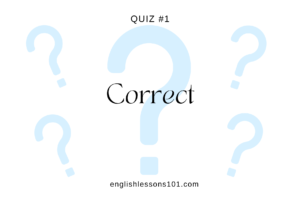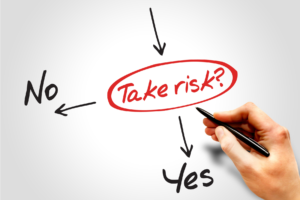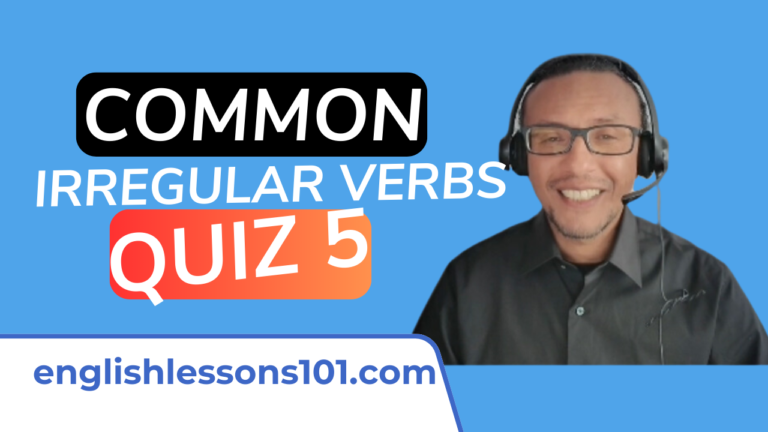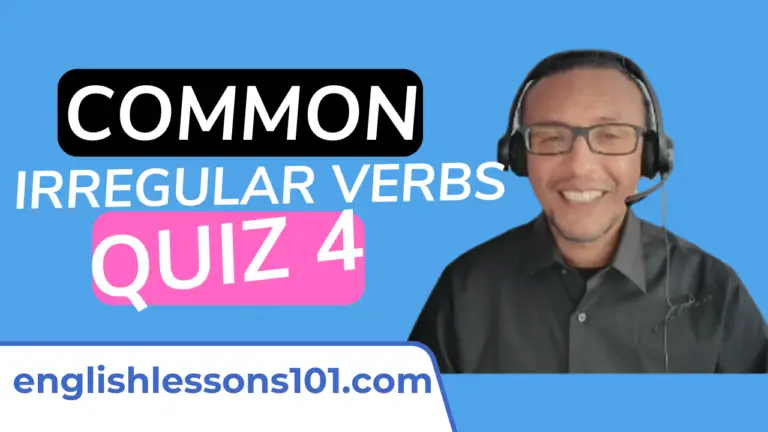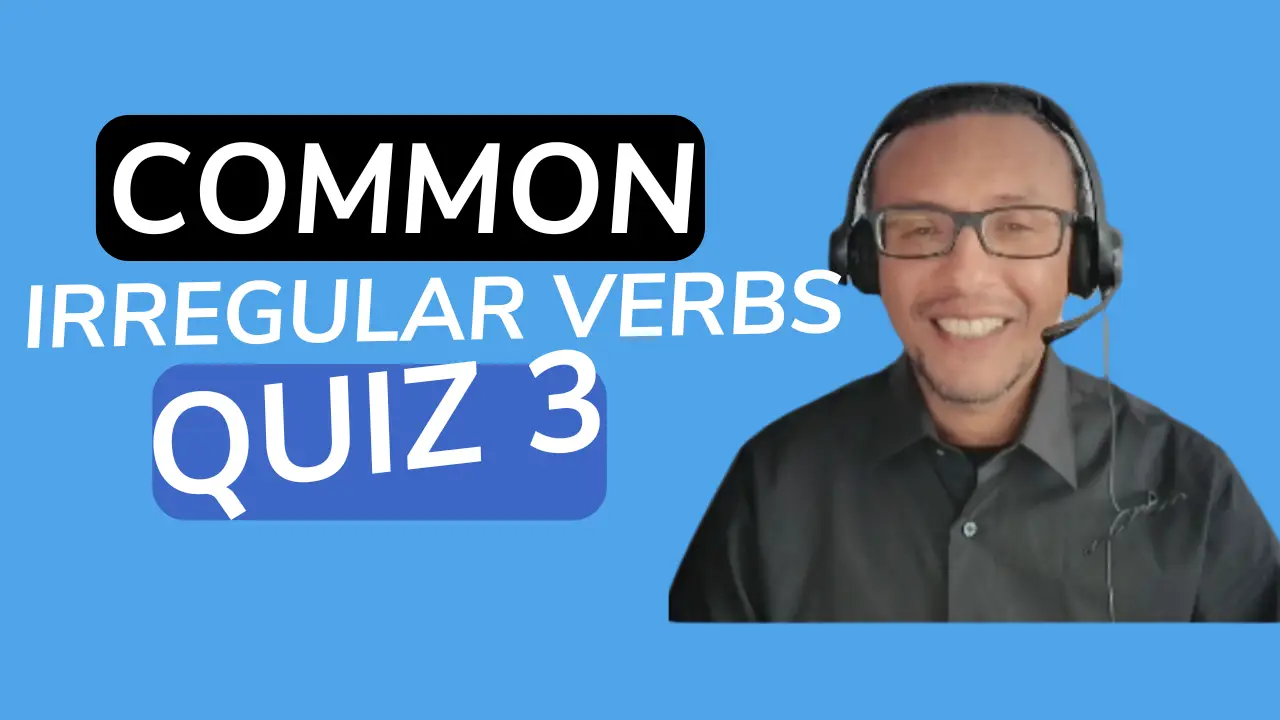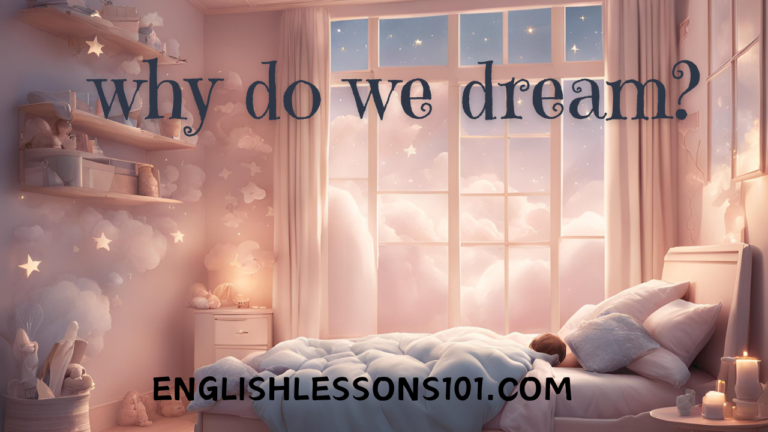Watch the lesson and do the quiz to test your knowledge
Hello and welcome to englishlessons101.
I’m your teacher Victor.
In this lesson I’m going to teach you about phrasal verbs
What are phrasal verbs
Why they are important in English
Kinds of phrasal verbs
Challenges of phrasal verbs
Tips for learning phrasal verbs
What are phrasal verbs?
They are phrases that indicate action.
They are Idiomatic phrase and have two parts: a verb and an adverb or a preposition.
Example:
Break down
Meaning: ceases to function, it doesn’t work anymore

Let’s look up phrasal verbs with break
Up = to end, to finish, to stop
She found out about the affair and broke up with him.
The police tried to break up the march.
In = force entry, to overcome newness
The thief tried to break in on the weekend.
I finally broke in these new pair shoes.
Off = come off, severed
The storm broke off many of the branches.
They almost broke off their engagement.
Away = leave, to get away, to escape
The USA broke away from the UK in 1776.
He usually breaks away from the pack after one hour.
down= to stop working, lose control.
My car broke down on my way to work.
She broke down and cried after telling her the news.
The meaning is not obvious: Look down on (to think that you are better or superior, disdain, feeling of superiority) me and not always clear from the words that are part of the phrasal verb. Cut back on= consume less
Why are phrasal verbs important in English?
Phrasal verbs are important to know because they are part of everyday English conversation. In other words, if you want to be able to communicate in English and understand everyday English conversation you should study them and learn them. There are many phrasal verbs but as you study them and practice them you’ll improve.
Example:
The homework was so difficult so I gave up.
The homework was so difficult so I stopped trying.
The meaning is the same but the phrasal verb is most likely to be used in speaking.
Separable and Inseparable Phrasal Verbs
It is important to know that there are two kinds of phrasal verbs: separable and inseparable. Separable phrasal verbs can be broken up by others words while inseparable cannot.

Let’s look at these examples:
Turn off = switch off
Turn off the computer
Turn the computer off
The students turn off the computers after class.
The students turn the computers off after class.
Bring up= raise, to foster, to rear, to nourish
Bring children up
Bring up children
Many young couples don’t want to bring up children.
Many young couples don’t want to bring children up.
There is no change in meaning.
Important:
when using separable phrasal verbs remember to keep the Object Pronoun between the verb and the adverb or preposition of the phrasal verb.
Example:
The students turn the computers off after class.
The students turn off the computers after class.
The students turn them off after class.
The students turn off them after class. (wrong)
One more example:
Put back = return
I put back the book on the desk.
I put the book back on the desk.
I put it back on the desk.
I put back it on the desk. (wrong)
Put it back (correct)
Put back it (incorrect)

Why is it difficult to learn phrasal verbs?
The meaning is not obvious:
Look down on me: to think that you are better or superior, disdain, feeling of superiority.
not always clear from the words that are part of the phrasal verb.
Cut back on= consume less
They can have more than one meaning
Be careful with the hyphen stand up is not the same as stand-up (adjective)
pickup = noun
Pickup = adjective a pickup basketball game
Pick up = phrasal verb to I picked up some French in Canada
acquired/ to learn
Go away the meaning is clear
Give up the meaning is not clear
Cut down = reduce
Tips for learning phrasal verbs
1.Treat phrasal verbs like any other vocabulary
2.Don’t try to memorize phrasal verbs. When was the last time you tried to memorize the dictionary?
3.Learn the phrasal verbs as a whole as sometimes the meaning is not obvious
4.Use context to help you understand the meaning of phrasal verbs.
Question of the day.
Have you picked up any new skills lately?
Let us know in the comment section
Remember to support this channel by liking, sharing and subscribing.
This is your teacher Victor.
Catch you later!! Bye!!
